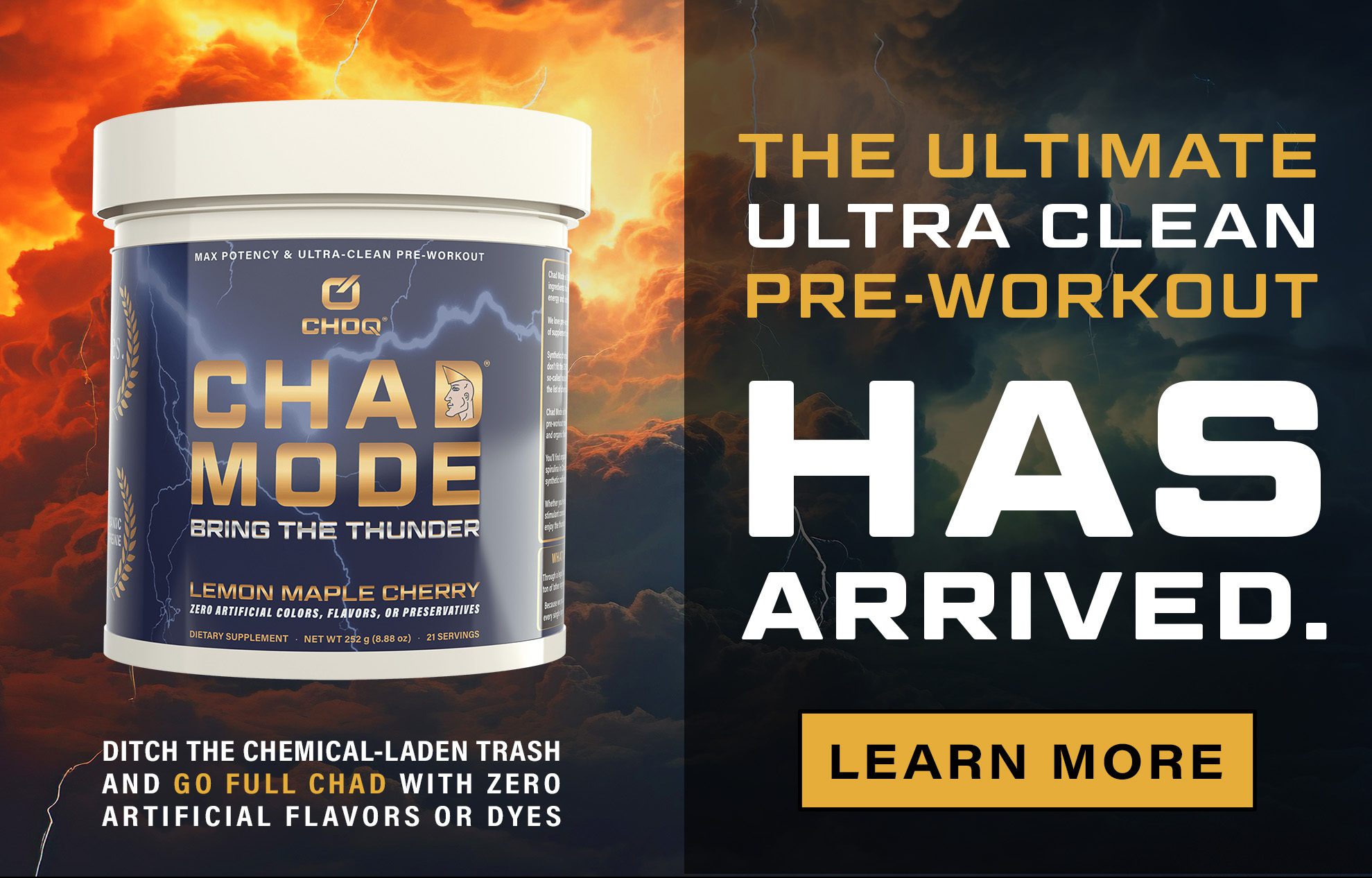Though the popularity of low-carb diets has begun to gradually decline in the last couple of years–with previously diehard keto proponents like Dr. Mercola changing their minds about carbs–many millions of Americans still regularly use xylitol to maintain a low-carbohydrate lifestyle.
A lot of the folks on high-fat, low-carb diets are already at a substantially higher risk of cardiovascular issues. Thus, if xylitol is in fact bad news for your heart, this research is particularly important.
At CHOQ, we’re always on the lookout for new research in nutritional science. It’s common for us to read a study that’s getting a ton of media attention, but when we ‘pop the hood’ (so to speak) and actually look at the study design, the evidence often ends up being incredibly weak and the headlines aren’t all that justified.
That’s because many of these studies are based only on correlation, where they give people surveys about what they ate, then connect that to different outcomes. This paper goes way beyond that.
In fact,this study on xylitol and cardio health is one of the most robust bits of nutritional research we’ve seen in a long while. While the paper does have a correlational component (which we’ll explain in a moment), it also directly demonstrates xylitol’s negative effects on both mouse and human blood. It’s really less of a ‘study’ and more of a paper consisting of multiple studies or experiments that complement each other.
So again, we’re not just talking about correlation here. We’re also talking about direct causal evidence that xylitol can impact the way your blood clots, reducing your circulation and making you more prone to cardiovascular problems.
Is xylitol a natural or artificial sweetener?
Before we discuss the details of the study, there’s one thing to mention to provide some critical context.
The word ‘natural’ is far harder to define than you might think. If anything, it’s more of a spectrum versus a totally black-and-white, binary issue. Fascinatingly, the FDA doesn’t even have a legal definition for ‘natural’.
Xylitol could be considered ‘natural’ in the sense that it’s found in nature. It’s not only present in minute quantities in fruits and vegetables, but also in the human body as a normal byproduct of glucose metabolism.
That being said, the amounts that are used in sugar-free foods and beverages are usually over 1,000-fold higher than what you’ll find in nature. It’s also important to mention that–unlike a lot of other sweeteners that are many times sweeter than sugar–xylitol’s sweetness is about the same as sugar.
That means that it’s being used in much higher amounts than you’d expect for a low-carb-friendly sweetener. For example, the authors of the study noted that one slice of a pie flavored with xylitol might contain a whopping 45 grams.
Blood levels of xylitol associated with higher cardiovascular event risk
It’s common to hear people in the natural health world claim that sugar alcohols like xylitol and erythritol don’t get absorbed. “They just pass right through you,” you may have heard someone say.
According to the authors of the paper, however, that’s only true if you’re a mouse:
“…we found xylitol, like erythritol, is readily absorbed following oral ingestion by humans, with plasma levels increasing over 1000-fold in the post-prandial setting. However, our present studies also revealed that in mice, in contrast to erythritol, which is rapidly absorbed by oral route, xylitol is poorly absorbed, with the majority of the ingested sugar alcohol recovered in faeces.”
In two separate studies using a combined total of over 3,200 people, the researchers measured levels of xylitol in the blood and then followed the participants for 3 years to track whether or not they developed certain cardiovascular issues (including heart attack and stroke).
They found a significant correlation between how much of the sweetener was in the participants’ bloodstreams and how likely it was that they had an adverse cardiovascular event within 3 years.
Considering that they had such a massive number of participants, this would still be enough data to raise some serious eyebrows, even though it can’t demonstrate a direct causal relationship. Fortunately, the researchers performed additional experiments to directly demonstrate xylitol’s effects on blood clotting.
Xylitol negatively affects blood clotting in both mice & humans
Because they lack the ability to absorb xylitol through the gut, the mice were given xylitol via injection instead of orally. The amounts given were comparable to the concentrations you’d expect to see in the blood if a human were to consume an average amount of the sweetener.
They then used special techniques to evaluate the behavior of their blood platelets. They concluded that they were acting in a way that would increase the likelihood of thrombosis (which is when a clot blocks a blood vessel).
They also used ten healthy human volunteers to study essentially the same thing, albeit with slightly different technology. In this experiment, they gave 10 people a drink sweetened with 30 grams of xylitol, which they claimed is comparable to a pint of xylitol-sweetened ice cream or several pieces of xylitol gum.
They took their blood immediately before and 30 minutes after they drank the beverage, then compared the behavior of the platelets in each sample. They found that xylitol increased clotting potential in proportion to how much of it made its way into the blood of each participant (absorption can vary from one person to the next).
Did you know that saccharin and aspartame are both deeply connected to pesticide companies and the military-industrial complex?
Check out our article ‘Sweeteners of War: How Monsanto and Donald Rumsfeld Brought Us Saccharin & Aspartame’ if you’d like to learn more.
Don’t forget to check your labels for xylitol
If you’re on a low-carb diet, there’s a good chance that you’re consuming significant amounts of xylitol in foods.
On top of that, it’s extremely common to find xylitol in powdered supplements of all kinds, not just made for keto. Virtually anything that’s in a ready-to-mix format will be flavored with some kind of sugar alternative, and xylitol is widely used in products like protein powders and pre-workouts.
While more research needs to be done before we can make any definitive conclusions about xylitol, we’re a big fan of the precautionary principle at CHOQ, which is why we don’t use xylitol or erythritol in any of our products. Savvy supplement consumers already expect most supplement companies to avoid using artificial sweeteners and flavors, but CHOQ goes above and beyond these entry-level quality standards.
For example, our ultra-clean pre-workout Chad Mode is sweetened with a dash of organic maple crystals and organic monk fruit powder (with only 3 grams of carbs per serving). We even used Blue Majik® organic blue spirulina for the color instead of the usual synthetic dyes you’ll find in many pre-workouts.
Finally, we also took Chad Mode to the next level by using real organic fruit powders instead of so-called ‘natural flavors’, which are anything but. Our refusal to use natural flavors puts our products in the absolute highest supplement quality tier, as the vast majority of companies still use them and other questionable ingredients (like poorly absorbed, inorganic minerals and vitamins in forms that might hurt you).
We also use full-disclosure labeling, meaning that we never use proprietary blends and always tell you the exact amount of every active ingredient.
If you’d like to learn more about how toxic and synthetic so-called ‘natural flavors’ really are, and why they don’t meet the CHOQ Standard, then you’ll definitely want to check out this article.
Also, check out our article Why Proprietary Blends Suck so you’ll never be duped again.
Do you really need to avoid xylitol altogether to protect your heart?
Again, we’re all about the cautionary principle at CHOQ. When in doubt, leave it out…unless the upsides vastly outweigh the downsides based on the evidence.
If you’re particularly concerned with your cardiovascular health, then it’s best to play the odds and avoid xylitol altogether. Even if you’re not though, there’s enough data on this molecule to suggest that it’s still a good idea to limit your intake.
Since sweeteners aren’t quantified on either food or supplement labels, there’s only one way to estimate how much you’re getting: by looking at the order in which xylitol appears on the list.
Because ingredients must be listed in descending order, according to their relative amounts, you can at least make a better guess regarding how much you’re getting. If you check different xylitol gums and candies, you’ll quickly find that it’s almost always toward the top of the list if not the very first ingredient (because, as mentioned earlier, it’s not any sweeter than sugar).
There are thousands of different toxic chemicals in both our food supply and our environment that are extremely hazardous to our health, so staying informed is essential if you want to protect yourself and your family. CHOQ is extremely passionate about educating the public about the dangers of these poisons and natural methods you can use to reclaim your vitality.
We regularly publish professionally written, scientifically rigorous blogs on topics like environmental toxins, nutritional science, and herbology, so if you enjoyed this article, be sure to scroll to the bottom of this page and sign up for our newsletter (which also gets you 15% off any subscription for life).
And yeah, if you’re looking for something fascinating to read right this moment, that article on Monsanto, Rumsfeld, and artificial sweeteners is a real banger.






